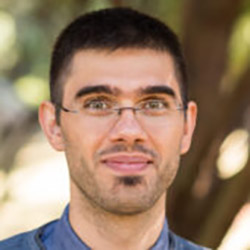Astro Seminar: Salvatore Vitale: "Astrophysics with gravitational-wave sources: today and tomorrow"

When:
Tuesday, November 15, 2022
3:45 PM - 4:45 PM CT
Where: 1800 Sherman Avenue, 7-600, Evanston, IL 60201 map it
Audience: Faculty/Staff - Student - Post Docs/Docs - Graduate Students
Contact:
Samantha Westlake
(847) 467-0764
samantha.westlake@northwestern.edu
Group: Physics and Astronomy: Astronomy Seminars
Category: Academic
Description:
In the first 7 years of operation, ground-based gravitational-wave detectors LIGO and Virgo have detected nearly 100 compact binaries, most of them black hole binaries. In this talk I will describe what can be learned about the formation channels of black holes using the gravitational waves they emit, and what was actually learned with the current dataset. I will highlight "expected" results, surprising findings, and associated caveats. I will then describe the scientific potential of next-generation gravitational-wave detectors, which could be online in the 2030s. Whereas current observatories will detect at most hundreds of compact binaries, at redshift below ~2, next-generation detectors will discover hundreds of thousands of compact binaries per year, at redshifts as high as ~100. They will thus explore the high-redshift universe and the formation of the first stars and the black holes they left behind in a totally new way, and search for stellar-mass primordial black holes early in the history of the universe.
Speaker: Salvatore Vitale, Associate Professor, Massachusetts Institute of Technology
Host: Professor Giacomo Fragione